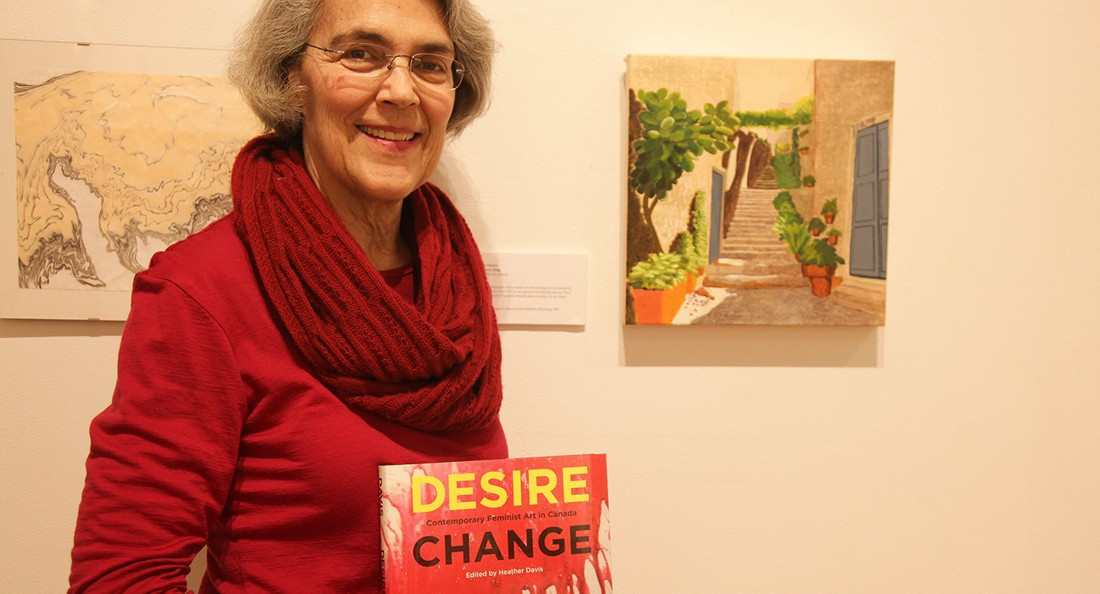Desire Change: A book club
Reading group looks at the history of feminist art in Canada
Once a month, a group of art lovers gathers at MAWA (Mentoring Artists for Women’s Art) to discuss a chapter of Desire Change: Contemporary Feminist Art in Canada. The book was co-published by MAWA and McGill-Queen’s University Press in 2017.
Roewan Crowe, artist, professor and chair of the Women’s and Gender Studies department at the University of Winnipeg, says she was thrilled when she was asked to facilitate the Desire Change reading group.
“For me, it was a no-brainer, because I teach this book in my feminist cultural productions class,” she says.
“I was happy to see ... finally, some feminist theory directed toward feminist artists in Canada. There’s lots of people writing about feminist artists in Canada, but that’s often behind a paywall, or it’s in artist-run centres, which is really great, but there’s not a great circulation of those knowledges.”
Crowe says that Desire Change is an excellent example of how an academic text can preserve and challenge ideas of
what the history of art can be.
“When I thought about why I was interested in facilitating a reading group around this book and why I use this book in my classes, I was thinking about Sara Ahmed, who sees herself as a ‘feminist killjoy,’” Crowe says.
“Sarah Ahmed talks about citation practices and how ... ‘Citation is feminist memory. It is how we leave a trail of where we have been and who helped us along the way,’” Crowe says, quoting Ahmed.
“She talks about the politics of citation. Who do we cite? What histories do we call forward? And then, in doing that, what kinds of canons do we make? Who is included in those canons, and then, of course, who is excluded?”
Briony Haig is an artist and long-time MAWA supporter who has attended the Desire Change reading group. She says the group has been a helpful context for unpacking the text.
“Although I have studied art history, I thought it would take on more meaning for me to discuss it in a group with Roewan's leadership,” she says.
“Studying the text for the meeting I did attend helped me to understand it better.”
Crowe says that the meetings so far have been an opportunity to explore intersectional feminist analyses of artists whose work has been largely overlooked by canonical art histories.
Desire Change “is ... structured around desire and talking about desire, and desire for intersectionality and decolonization and for a race-based politic, which I love,” she says.
“So the people who are at that group, they do desire reading together and talking about the things they’re reading about. So it’s very flexible, it’s very easy, and it’s very lively. What I really discovered was how little access people have to these kinds of
art histories.
“People didn’t know this work. That was exciting. Everyone was excited.”
Desire Change can be purchased for $45 at MAWA (611 Main St.). The next session will be held on Dec. 11 from 6:30pm to 8:00 p.m. at MAWA.
Published in Volume 73, Number 11 of The Uniter (November 22, 2018)






